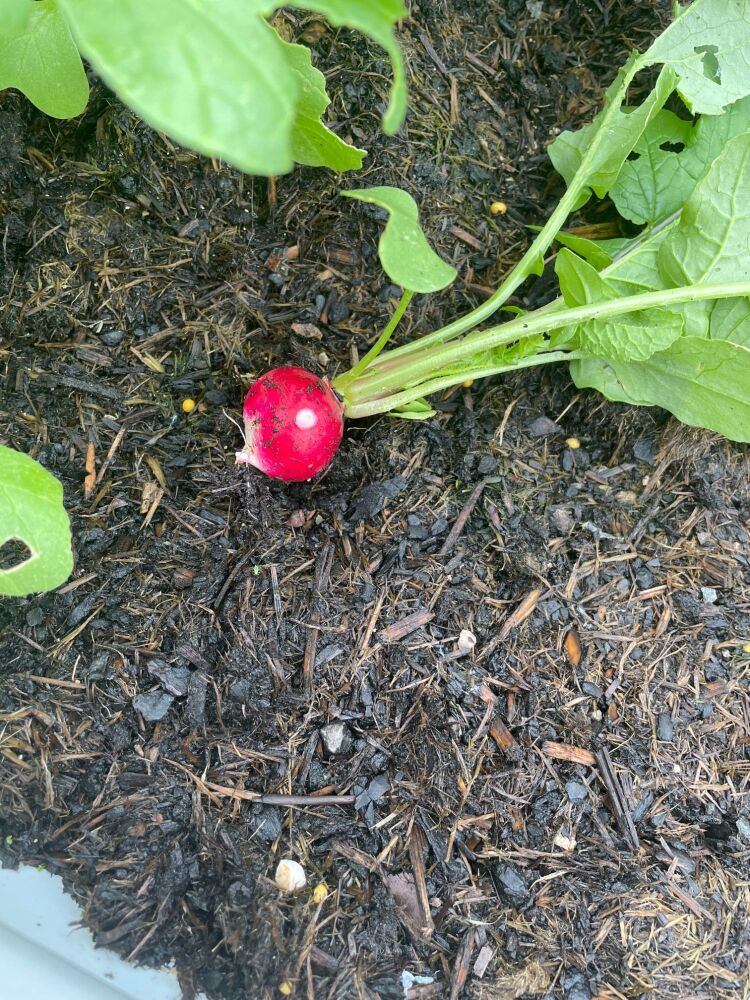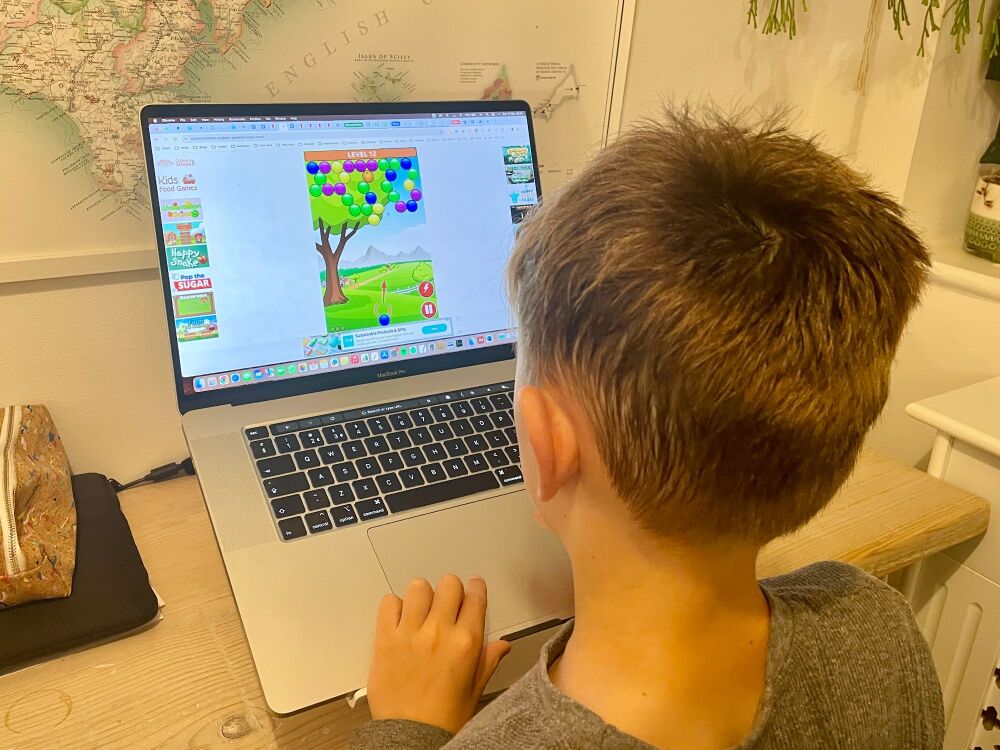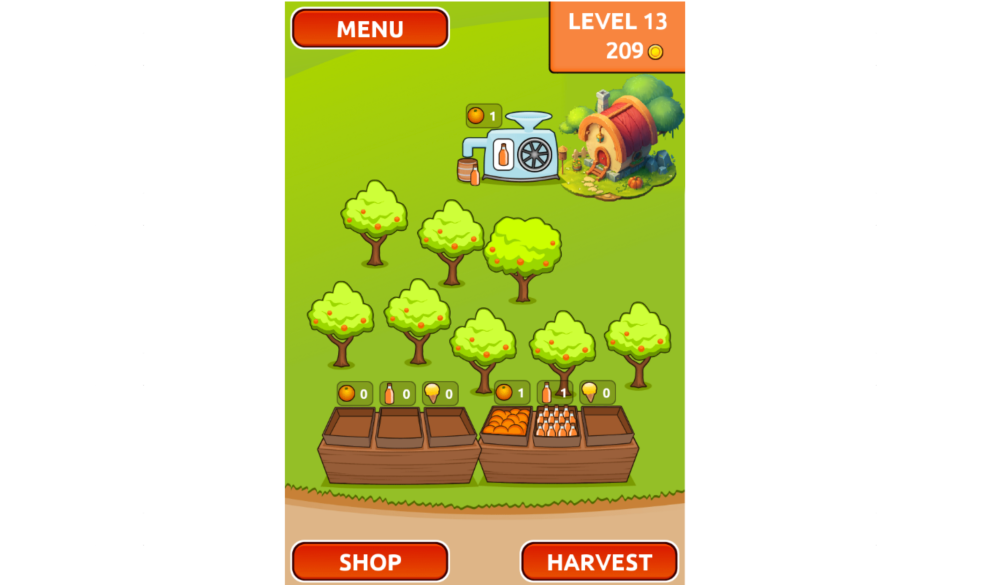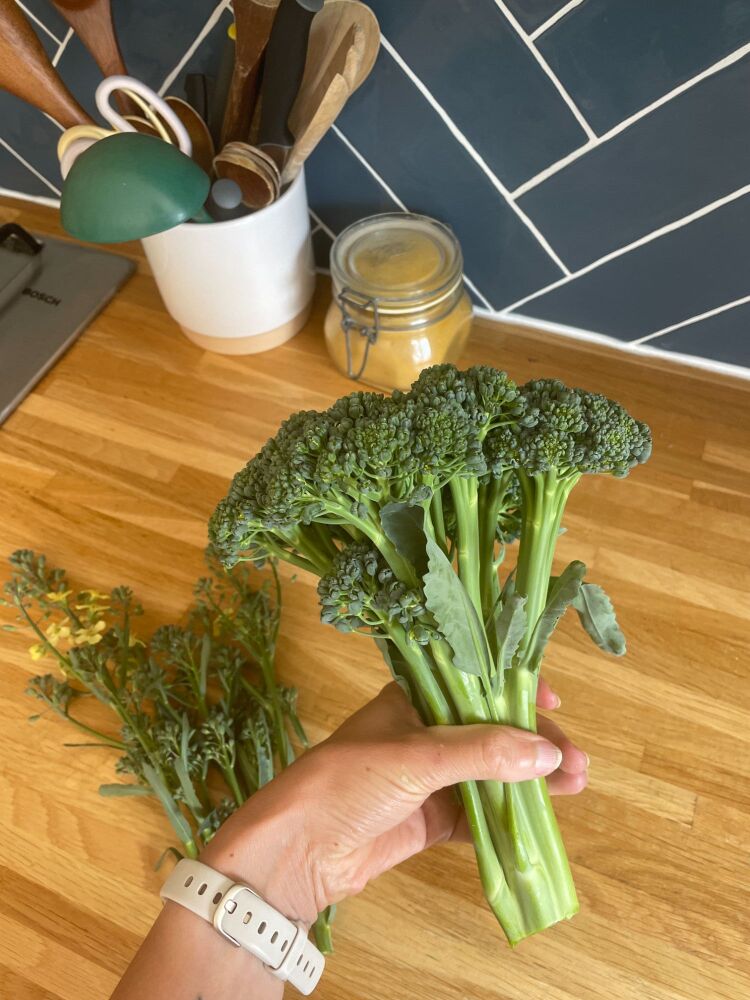Why Growing Food Will Financially Empower Your Kids
Posted on
Let's face it, family grocery bills have been on the rise nonstop over the past few years and in an era where every penny counts. What if there was a way to empower your kids, have fun together, and save some cash on your food bill? Enter the amazing world of growing your own food and homegrown cooking!
This fun guide shows how to empower kids with gardening and cooking skills, fostering healthy habits & financial responsibility.

Why Teaching Kids to Grow Food is a Money-Smart Move
Teaching kids to grow and cook their food is a win-win on so many levels, and it's easier (and more rewarding) than you might think. As grocery bills rise and people look for ways to save money on the weekly food shop, empowering kids to grow and cook their own food is a fantastic way to introduce financial responsibility. One often overlooked aspect of this education is teaching kids the value of growing and cooking their own food. Not only does it impart essential life skills, but it also fosters a mindset of self-reliance and resourcefulness that can translate into significant savings over time.
Teaching your kids to grow their own food is a money-smart move for your kids because:
-
You'll teach them how to create their own fresh free food source. After the initial setup, growing your own vegetables, herbs, and even some fruits can pay for itself over time. Techniques like saving seeds, making compost, and regrowing vegetables from scraps minimise ongoing costs, keeping your garden productive for years to come.
-
They'll save money on groceries in the future. Imagine the pride of enjoying a salad made with lettuce you grew yourself! These skills will help them make budget-friendly choices throughout their lives.
-
It will inspire a love of healthy eating. Freshly grown produce often has more vitamins and minerals than store-bought options. They'll learn to appreciate the taste and health benefits of real, homegrown food.
-
It cultivates valuable skills. Growing food can spark an interest in entrepreneurship or community involvement. They might even explore selling their produce or donating it to a local food bank!
When children actively participate in growing and cooking their own food, they develop a sense of independence and self-sufficiency. They learn that they have the ability to provide for themselves, reducing reliance on convenience foods or costly takeaways. This empowerment extends beyond the kitchen, instilling a can-do attitude that can positively influence their financial decisions in the future.
How to Encourage and Inspire Your Kids to Grow Their Own Groceries
Gardening and growing your own isn’t just for adults. It’s something the whole family can get involved in, no matter how young the children are. There's a whole world of vibrant vegetables and tasty herbs waiting to be discovered by little green thumbs. But how can you inspire a love of growing your own in your little ones?
Here are some ways to get your kids excited about growing their own food:
Start Small
Don't overwhelm them with a massive plot. Choose a small, manageable space like a sunny windowsill or a few pots on a patio. Here’s how to get started while starting small:
-
Consider your child's age and attention span: For younger children, a small raised garden bed (think sandbox size) is a great option. It allows them to easily reach and interact with their plants without adult assistance. Older kids might be able to handle a slightly larger space in a sunny corner of the yard.
-
Think about location: Sunlight is crucial for most plants. Choose a spot that gets at least 6 hours of direct sunlight per day. If you're limited on outdoor space, a sunny windowsill is a fantastic alternative for herbs and some leafy greens.
-
Upcycle containers: You don't need fancy planters to get started! Repurpose old buckets, colanders, or even empty soda bottles (with drainage holes) as mini-planters. Let your child help decorate them for a personalised touch.
-
Start with a single crop: Instead of overwhelming them with a variety of plants, choose one or two easy-to-grow options like cherry tomatoes, leafy greens, or fast-growing herbs like basil. This allows them to focus on learning the basics of watering, sunlight, and care without feeling overwhelmed.

Things like radishes, carrots, tomatoes and cress are easy to grow!
Pick Kid-Friendly Plants
Let them choose! Cherry tomatoes, fast-growing herbs like basil, and colourful leafy greens are all great options for impatient young gardeners. These choices provide quick gratification, as cherry tomatoes and many herbs grow and produce results relatively fast. Plus, colourful leafy greens like red mustard or rainbow chard visually engage kids, making them even more excited to watch their garden grow!
Check out our guide of easy grow your own vegetables for children!

My son loves the games like Orange Farm at Culinary Schools!
Use Online Resources to Make it a Game
Turn planting and caring for their plants into an adventure. There are even free online resources with fun, educational games about growing food. These can be a great way to spark their interest and teach them valuable lessons about plant science, as well as to teach entrepreneurship skills related to growing your own in a way that feels like play.
Some games focus on plant identification and care, while others are virtual farms where kids can manage crops and sell them at a market. This allows them to learn about different plant life cycles, the importance of pollination, or even basic concepts of economics through virtual markets.
For example, my nine-year-old son loves the Orange Farm game at Culinary Schools which is a SIMs-style game where he can complete bubble-popping games to harvest orange trees, sell the produce and build his own orange grove:

Online resources like these are great for inspiring kids to grow their own and to learn valuable business skills in the process.
Here’s how to maximise online games and resources to instil a love for growing vegetables in your children:
-
Variety is key: Don't limit yourself to just one game! Explore different online resources that offer a range of interactive activities. Some might focus on plant identification and care, while others might be virtual farms where kids can manage their own crops and sell them at a market.
-
Learning through play: Highlight the educational aspect of these games. They can teach kids about different plant life cycles, the importance of pollination, or even basic concepts of economics through virtual markets.
-
Connect online to offline: Use online games as a springboard for real-world activities. After playing a virtual farm game, encourage your child to create a miniature market stand to sell their homegrown produce (even if it's just to siblings or neighbours!)
Celebrate Success
When those first seedlings sprout, make a big deal about it! Let your children feel the accomplishment of nurturing life. Don't just wait for the harvest! Celebrate every step of the way. Take pictures of the first sprouts and create a growth chart to track the progress. This keeps them engaged and excited about the entire process.
Capture the joy by taking photos of your child tending to their plants, and document their progress with a garden journal. These memories will become cherished keepsakes and inspire them to continue their gardening journey.

Homegrown broccoli from our garden vegetable patch!
Inspire Lifelong Skills By Cooking Your Homegrown Veg
Once your homegrown harvest starts rolling in, it's time to get creative in the kitchen! Here's why involving kids in cooking is a fantastic idea:
-
Life Skills for the Future: Knowing how to cook basic meals is a valuable life skill that will benefit them for years to come.
-
Budget-Friendly Feasts: Home-cooked meals are almost always cheaper than takeout or processed foods. Teaching kids to cook with fresh ingredients helps them understand the value of money and make healthy choices.
-
Confidence in the Kitchen: Allowing kids to participate in meal prep fosters a sense of accomplishment and self-reliance. When they can proudly say "I made this!" it's a real confidence booster.
-
Family Fun Time: Cooking together can be a fantastic way to bond and create lasting memories. Put on some music, have fun experimenting with flavours, and enjoy the process!
From Seed to Supper: Homegrown Food is a Recipe for Success!
Encouraging children to participate in the process of growing and cooking food fosters a deeper connection with what they eat. When they witness the effort and care that goes into producing a meal, they develop a greater appreciation for food and are less likely to take it for granted. This understanding can lead to more mindful consumption habits, ultimately reducing food waste and saving money.
Teaching kids to grow and cook food is a hands-on approach to financial education. By learning how to cultivate a vegetable patch or tend to a herb garden, children gain practical skills that can translate into significant savings on food shopping. Growing their own produce reduces grocery bills while mastering basic cooking techniques equips them to prepare meals at home instead of dining out, a cost-effective alternative.
By teaching children the importance of growing and cooking food from a young age, we set them up for a lifetime of healthy habits and financial savvy. These skills are not only beneficial in childhood but also lay the foundation for responsible adulthood. Whether it's planting herbs on a windowsill or mastering a new recipe, the lessons learned in the kitchen can last a lifetime.
Teaching kids to grow and cook their food is an investment in their future and your wallet. It empowers them with valuable skills, fosters a sense of responsibility and accomplishment, and creates lasting memories. So, grab your gardening gloves and your aprons, and get ready to embark on a delicious and rewarding adventure with your little chefs!
